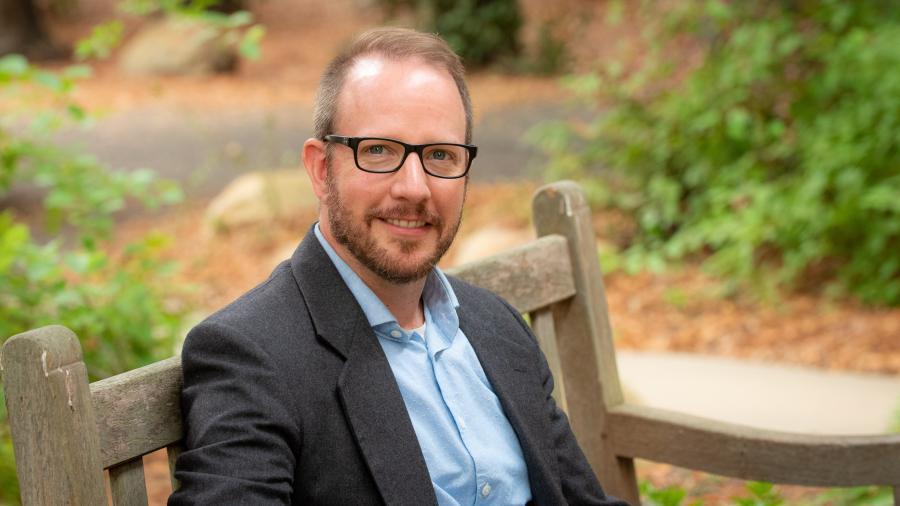Westmont Magazine Study Examines Attachment to God, Psychological Distress

Blake Victor Kent, assistant professor of sociology, co-authored a national study examining the link between perceived relationship withGod and mental health from a sample of more than 1,600 Americans. The research suggests that religious believers who relate to God in an uncertain or anxious manner are more likely to experience symptoms of psychological distress, including anxiety, paranoia, obsession and compulsion.
“Attachment to God and Psychological Distress: Evidence of a Curvilinear Relationship” appears in the Journal for the Scientific Study of Religion. It relies on data from the 2010 Baylor Religion Survey, a national survey of American religious beliefs, values and behaviors. The research sheds light on how different styles of connecting to God — or attaching to God — may be related to poorer mental health.
“Most research on attachment to God has suggested a simple linear relationship, where a less avoidant — or secure — relationship is associated with better mental health and
a more avoidant relationship with worse,” Kent says. “But there have been hints in the research that the relationship may actually look more like an upside down U-shaped curve. So that’s what we looked for, and that’s what we found.”
They discovered the inverse curve in a scale composed of six items measuring avoidance and non-avoidance in relationship with God.
Sample items read:
» “I have a warm relationship with God.”
» “God knows when I need support.”
» “God seems to have little or no interest in my personal affairs.”
The findings indicate that those who are less avoidant and those who are more avoidant in their relationship with God both experience lower levels of psychological distress. The people in the middle seem to suffer from more mental health problems.
“This doesn’t mean avoidant attachment to God is unproblematic,” Kent says. “Avoidance is what happens when you just stop relying on God — you don’t trust that God will be there for you, so you learn to rely on yourself. And that extends to other people as well.”
Numerous national media outlets carried stories about the study and Kent’s participation. A prolific scholar, he has been appointed research affiliate at Harvard University’s Human Flourishing Program and co-investigator for the Global Flourishing Study (GFS). This $45 million study of religion, spirituality, flourishing and health will evaluate 240,000 participants in 22 countries across five waves of annual panel longitudinal data. Kent also co-authored a study in Journal of Religion and Health, “Perceptions of Accountability to God and Psychological Well- Being among US Adults.” He served on a panel of the American Scientific Affiliation discussing “Secularity and Science: What Scientists Around the World Really Think about Religion.” A story about his work on religion and depression appeared in the Plain Bible Teaching podcast.
Kent’s latest studies have been covered by Newsweek, Christian Post, Baptist Standard, and the John Templeton Foundation among others.